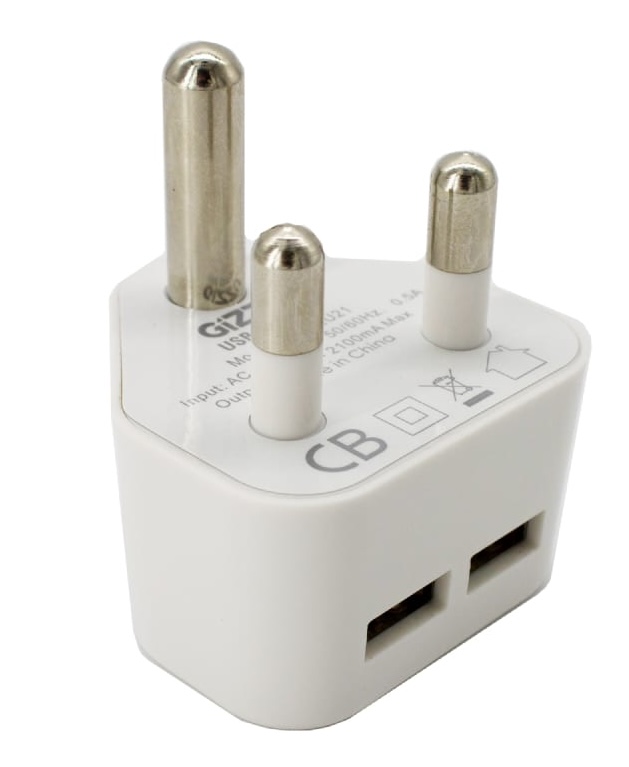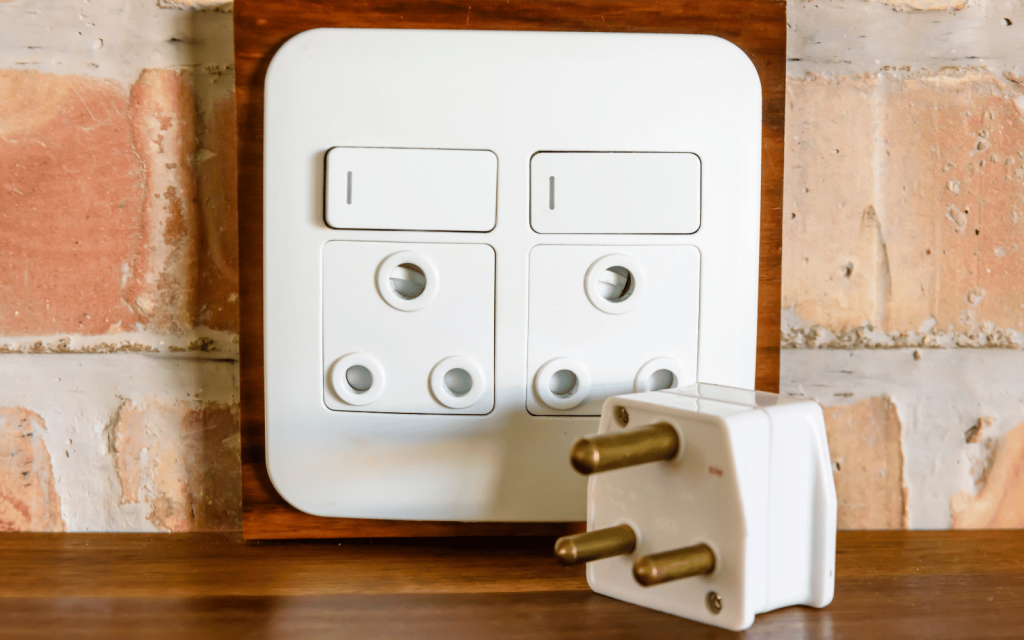South Africa has a unique three-pronged plug which you won’t find in many other countries.
Called Type-D in the technical specifications, it is a lingering leftover from the Apartheid years. As a British colony, the country had the UK’s square-shaped three-pronged plugs. But around the time the Republic of South Africa was formed, the National Party – whose other great error was the racist Apartheid policy, among many, many others – decided to introduce its own plug. It’s a problem we still live with – and visitors also have to suffer through.
Plugs and Power

The easiest solution is to buy an adaptor, which is thankfully very cheap (around R100) and you can have delivered to your hotel or accommodation before you arrive.
I have bought many of this pack of three UK, US and EU adaptors from Takealot, the country’s largest e-commerce operator.
Given the unreliability of the electricity, and depending on where you are staying, it might be worthwhile to get a so-called power station. These are bigger-than-usual power banks that can run for several hours, charge a laptop or run a TV for an important game, or just keep your frustration at bay. Most of them have built-in lights.
Read More: Next-gen batteries: Get through load shedding in comfort with one of these backups
If you are staying in a hotel, they are likely to have a backup power solution. Check with any Airbnb or rental to see if they have an inverter, but be sure to check how long the batteries last.
European and US two-pronged plugs are generally catered for in hotels. The EU shape is widely used in South Africa and there are generally adaptors for these because they are used for mobile and laptop chargers.
It’s also advisable to get a surge protector plug. This one from local brand Gizzu is cheap (R200) and reliable. With the electricity coming off and on, there will likely be a surge in voltage. This is never good for electronic devices, even if they have a built-in protector of their own.
Read More:
Next-gen batteries: Get through load shedding in comfort with one of these backups
South Africa’s power crisis will continue until 2025 – and blackouts will take 5 years to phase out
Home power backup systems – electrical engineers answer your questions
What you need in your business-focused load shedding survival kit





1 Comment
Wow. Even ‘ol Toby had to jump on the racist apartheid bandwagon with the ANC just before elections. For a writer of your caliber I would have thought that racist apartheid words would never be used to describe a plug. hahaha yea well, it takes all types I suppose.